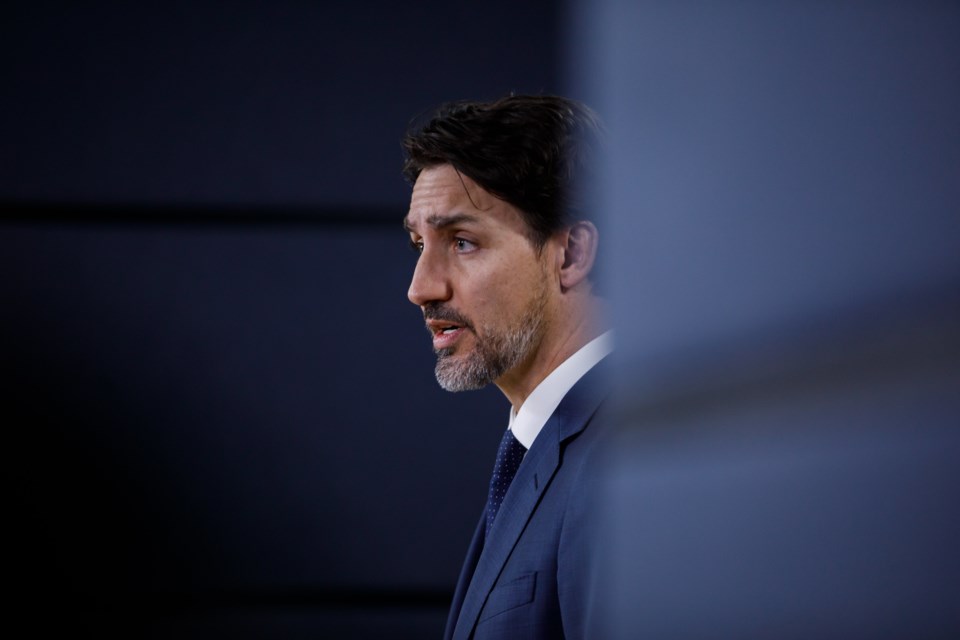Prime Minister Justin Trudeau says the federal government in monitoring the security of CanadaвҖҷs food supply chain amid concerns the country is facing a meat shortage.
вҖңAgriculture Canada is very much on this issue,вҖқ Trudeau said Wednesday (April 29) during his daily media briefing outside his home in Ottawa.
He said the federal government is working with industry and the provinces to ensure the nationвҖҷs food supply chain remains stable.
Concerns are growing amid closures of multiple meat-processing plants across Canada, including two poultry plants in Metro Vancouver, as COVID-19 outbreaks hit workers.
McDonald's Corp. announced Tuesday it would be sourcing imported beef for its burgers due to its own unease over CanadaвҖҷs domestic supply.
Trudeau, who did not take follow-up questions during an abbreviated media briefing, wouldnвҖҷt commit to mandating meat-processing plants stay open across the country.
He said the country would have to find the right balance between worker safety and food security.
Meanwhile, the prime minister also faced questions regarding
The guidelines are not federal mandates aimed at the provinces, but a shared sense of principles aimed at guiding decision-makers in different regions as they work to reopen the economy.
The guidelines address the need for sufficient capacity for testing and tracing for COVID-19, as well as workplace protocols regarding hygiene and the potential for easing restrictions on non-essential domestic travel.
The provinces and the federal government have agreed to take a science-based approach to restarting the economy, whereby public health officials would advise on decisions to ease restrictions.
The guidelines were released the same week Quebec вҖ” the province hardest hit by the coronavirus вҖ” unveiled plans to gradually ease some of its restrictions next month.
When asked why the guidelines were not made mandatory, Trudeau highlighted co-operation between the provinces and Ottawa on working on efforts to restart the economy.
вҖңProvinces have the responsibility of ensuring the safety of their citizens while they work at reopening. We are comfortable that these guidelines lay out a roadmap that everyone can follow [and] that principles will allow them to put in the measures that will keep their citizens safe while looking at reopening various parts of the economy carefully,вҖқ he said.
The prime minister also revealed the government has received вҖңa number of different proposalsвҖқ that might be applicable to Canada for coronavirus-tracing through use of a mobile app.
вҖңWeвҖҷre going to keep in mind that Canadians put a very high value on their privacy, on their data security, and we need to make sure that we respect that, even in a time of emergency measures and significant difficulty and crisis,вҖқ Trudeau said.
вҖңWeвҖҷre going to get that balance right.вҖқ
The prime minister addressed media shortly before departing for a reduced sitting of the House of Commons, which votes later in the day on a $9-billion relief package.
The Canada Emergency Student Benefit offers $1,250 a month to students from May to August.
The monthly benefit goes up to $1,750 a month for students with disabilities or for those with a dependent.
Accessible through the Canada Revenue Agency, it will apply to current students as well as those who graduated stretching back to December 2019.
Ottawa is also seeking to launch the Canada Student Service Grant for those who volunteer for efforts to fight COVID-19.
Those summer volunteers will be eligible for $1,000-5,000, depending on how many hours they work.
Graduate students will be able to tap into $291 million in extended scholarships, fellowships and grants.
Student grants committed for the year will be doubled by the government, with $75 million in support going to Indigenous students.
Many students do not qualify for the Canada Emergency Response Benefit (CERB), which requires applicants to have earned $5,000 in the past 12 months.
The $24-billion CERB program offers $2,000 a month to workers for up to 16 weeks.
The federal government also hopes toВ create 76,000 jobs for young people in addition to the Canada Summer Jobs program, adding specific support would be introduced for Indigenous students as well.



